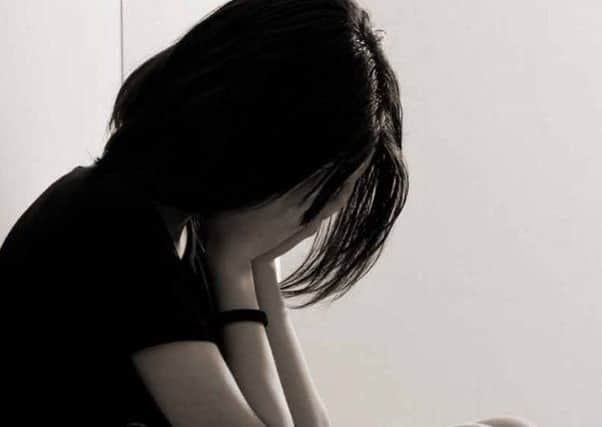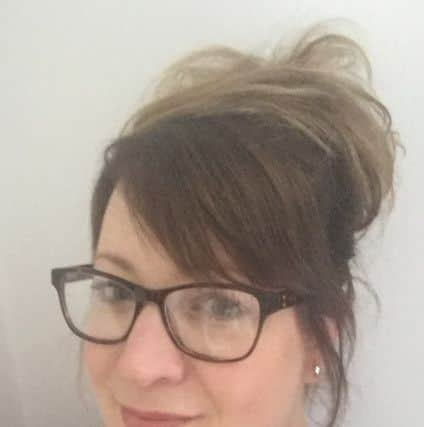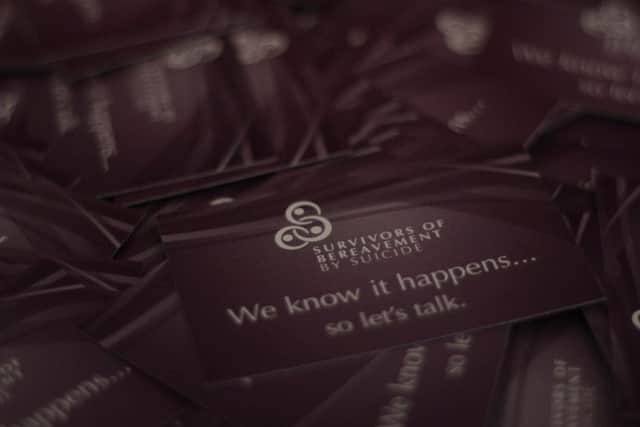Offering support to those in need
This article contains affiliate links. We may earn a small commission on items purchased through this article, but that does not affect our editorial judgement.


Losing a loved one is never easy, but when that person has taken their own life there are a multitude of emotions and questions that arise.
Through her own personal experience Sarah Honeysett, along with her sister-in-law and a friend, has set up a support group to help those bereaved by suicide.
Advertisement
Hide AdAdvertisement
Hide AdIn 1999 Sarah was 19 and studying to be a nurse when her father took his life, a moment that she says changed her path.


At the time she admits there was little help and support available and adds she wishes a charity like SOBS (Survivors of Bereavement by Suicide) had been available to her.
“When someone in your family takes their own life you can feel quite lonely,” reveals Sarah.
“Each family member will deal with it differently and think differently about it.
Advertisement
Hide AdAdvertisement
Hide Ad“Sometimes you need someone else to talk to as you don’t want to talk to your family about how you are feeling as you don’t want to upset anyone.”


Sarah came across SOBS a year ago and decided as the closest support group was in Brighton that she would set the wheels in motion to have a group in Horsham.
“People don’t know what to say when you tell them how a loved one has passed away if it is suicide,” she says.
“We won’t be offering counselling but will offer support.
“If you need a hug have a hug, or if you just want a cup of tea and a biscuit then that is fine.
Advertisement
Hide AdAdvertisement
Hide Ad

“I don’t claim to be an expert but I have been through it and I hope my experiences can help others as well.
“It is about giving people hope that you can come through the other side.”
Passionate about the subject, Sarah is keen to break down the barriers when it comes to mental health and suicide.
“There is still such a stigma attached to it,” she says.


“It has changed since 1999 but there is still so much to do.
Advertisement
Hide AdAdvertisement
Hide Ad“It isn’t like if you have a physical illness you can’t walk around with a bandage on your head if you have depression, people just don’t understand it.”
When she tells people about her father Sarah found that they had a lot of questions mainly how and why.
“You don’t always want to go through it but people are curious,” she says.
“There will always be lots of unanswered questions no one ever really knows why someone does it.
Advertisement
Hide AdAdvertisement
Hide Ad“Anyone that saw my dad before have said that he seemed better, he was off his medication but he just had that clarity that he was going to do it and once someone has come to that decision you can’t talk them out of it.”
One of the main issues with mental illness is that like many other conditions it doesn’t discriminate.
“My dad was a military man,” explains Sarah.
“He was a Grenadier Guard at Buckingham Palace for the Queen. He was also a fireman after he left the army, both ‘strong’ stereotypes which show that mental health doesn’t discriminate.
“It can happen to anyone and I want people to be able to talk about things.”
Advertisement
Hide AdAdvertisement
Hide AdThe Horsham SOBS group will start in February, 2017, and Sarah hopes through the support group she will be able to help people and show there is light at the end of the tunnel.
To find out when and where it will take place you can contact Sarah via email [email protected], phone 07752 874693, or search SOBS Horsham on Facebook.
Survivors of Bereavement by Suicide is a registered charity that was founded in 1991, by Alice Middleton MBE, who is now the founding patron.
Following the death of her brother and finding little support available, she placed an advert in her local paper seeking to make contact with others who had been bereaved by suicide.
Advertisement
Hide AdAdvertisement
Hide AdShe started the first support group from her living room in Hull to support those left behind after a suicide and as such it is the only organisation that is user led, operating throughout the country that specifically services this need.
All evidence shows, and in particular that of those who have been bereaved, that suicide is a intense form of grief that can last for many years and carries with it many complexities of guilt, shame and stigma.
To address these needs, SOBS currently operates a national helpline, self-support groups and has a number of conferences, forums and support days for survivors.
For more information visit: uk-sobs.org.uk
If you need someone to talk to The Samaritans is available 24 hours a day to provide confidential emotional support for people who are experiencing feelings of distress, despair or suicidal thoughts.
You can visit its website www.samaritans.org or call free any time, from any phone on 116 123.
This first featured in the December edition of etc Magazine